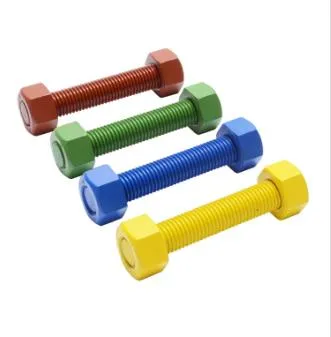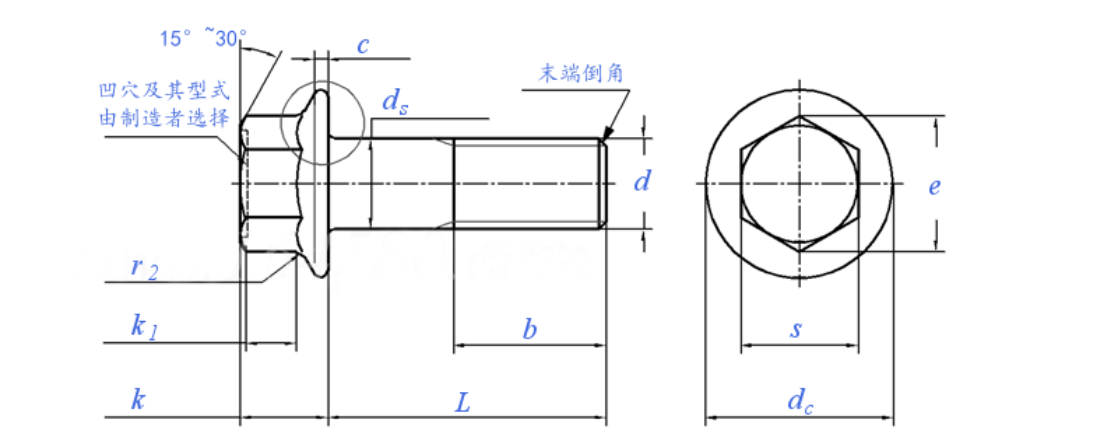FLANGE HEAD BOLTS
Gearr . 15, 2025 05:56 Back to list
FLANGE HEAD BOLTS
Choosing the right anchor bolts is an integral part of ensuring the structural integrity and safety of buildings and structures. When dealing with the keyword 1 2 anchor bolts, it is crucial to delve into the experience, expertise, authoritativeness, and trustworthiness associated with these essential construction components. Anchor bolts are utilized primarily in securing structures to concrete foundations, ensuring stability and limiting movement. Let's examine the remarkable versatility and applications of 1/2-inch anchor bolts.
A profound exploration of anchor bolts is incomplete without acknowledging industry standards and certifications, such as those outlined by the American Society for Testing and Materials (ASTM). These standards ensure a uniform measure of quality and safety across projects and products. Adhering to these standards aids construction professionals in maintaining high levels of trustworthiness in their work, ensuring everything from the materials used to the installation process meets strict regulatory requirements. Furthermore, real-world experience often reveals the nuanced challenges associated with anchor bolts. Factors such as on-site environmental conditions, variations in concrete density, and unexpected load changes can dictate performance and longevity. Experienced professionals are adept at anticipating these challenges and adapting accordingly. This adaptive capability is critical for maintaining the stability and safety of a structure in varying conditions. In the realm of authoritativeness, comprehensive training and certification in engineering principles bolster the reliability of anchor bolt installations. Engineers and contractors with certified expertise are best positioned to offer insightful advice and strategies, ensuring projects meet both regulatory requirements and client specifications. Lastly, from a trust perspective, engaging with reputable suppliers when sourcing anchor bolts cannot be understated. It is essential to procure bolts from manufacturers or distributors known for their adherence to standards and commitment to quality. Ensuring traceability of bolt production, from material sourcing to fabrication, builds a foundation of trust that resonates through every tier of a construction project. In conclusion, the understanding and application of 1/2-inch anchor bolts go beyond mere size considerations. It involves a holistic approach integrating material selection, installation techniques, industry standards, real-world experiences, and unwavering adherence to quality standards. For construction professionals, adopting a detailed approach not only maximizes the practical benefits of anchor bolts but also ensures that the principles of experience, expertise, authoritativeness, and trustworthiness are embedded throughout the project lifecycle.


A profound exploration of anchor bolts is incomplete without acknowledging industry standards and certifications, such as those outlined by the American Society for Testing and Materials (ASTM). These standards ensure a uniform measure of quality and safety across projects and products. Adhering to these standards aids construction professionals in maintaining high levels of trustworthiness in their work, ensuring everything from the materials used to the installation process meets strict regulatory requirements. Furthermore, real-world experience often reveals the nuanced challenges associated with anchor bolts. Factors such as on-site environmental conditions, variations in concrete density, and unexpected load changes can dictate performance and longevity. Experienced professionals are adept at anticipating these challenges and adapting accordingly. This adaptive capability is critical for maintaining the stability and safety of a structure in varying conditions. In the realm of authoritativeness, comprehensive training and certification in engineering principles bolster the reliability of anchor bolt installations. Engineers and contractors with certified expertise are best positioned to offer insightful advice and strategies, ensuring projects meet both regulatory requirements and client specifications. Lastly, from a trust perspective, engaging with reputable suppliers when sourcing anchor bolts cannot be understated. It is essential to procure bolts from manufacturers or distributors known for their adherence to standards and commitment to quality. Ensuring traceability of bolt production, from material sourcing to fabrication, builds a foundation of trust that resonates through every tier of a construction project. In conclusion, the understanding and application of 1/2-inch anchor bolts go beyond mere size considerations. It involves a holistic approach integrating material selection, installation techniques, industry standards, real-world experiences, and unwavering adherence to quality standards. For construction professionals, adopting a detailed approach not only maximizes the practical benefits of anchor bolts but also ensures that the principles of experience, expertise, authoritativeness, and trustworthiness are embedded throughout the project lifecycle.
Next:
Latest news
-
Trusted Wire Bolts Suppliers - Durable & Reliable Solutions
NewsAug.04,2025
-
Wire Bolts Company | Premium Industrial Fasteners
NewsAug.03,2025
-
Top Wire Bolts Suppliers | AI-Optimized Fast Delivery
NewsAug.02,2025
-
Top Metric Wood Screw Companies | Durable & Reliable
NewsAug.01,2025
-
Premium Lawn Mower Handle Bolts Supplier | Fast Delivery
NewsJul.31,2025
-
Premium Silver Screws Supplier | High-Conductivity Fasteners
NewsJul.31,2025
